Welcome to our article on “Best Practices For Winter Skincare.” As the winter season approaches, it’s important to take extra care of your skin to combat the harsh weather conditions. By following these best practices, you can maintain healthy and radiant skin throughout the colder months. From hydrating moisturizers to gentle exfoliation, we will explore the essential steps to keep your skin glowing this winter. Don’t let the cold weather dull your complexion – follow these tips to keep your skin looking its best.
Best Practices For Winter Skincare
Are you struggling with dry, flaky, or irritated skin during the winter months? It’s a common issue many people face when the cold weather hits. But fear not, with the right skincare routine and products, you can keep your skin healthy and glowing all winter long. In this article, we’ll discuss the best practices for winter skincare to help you combat the harsh effects of the cold weather on your skin.
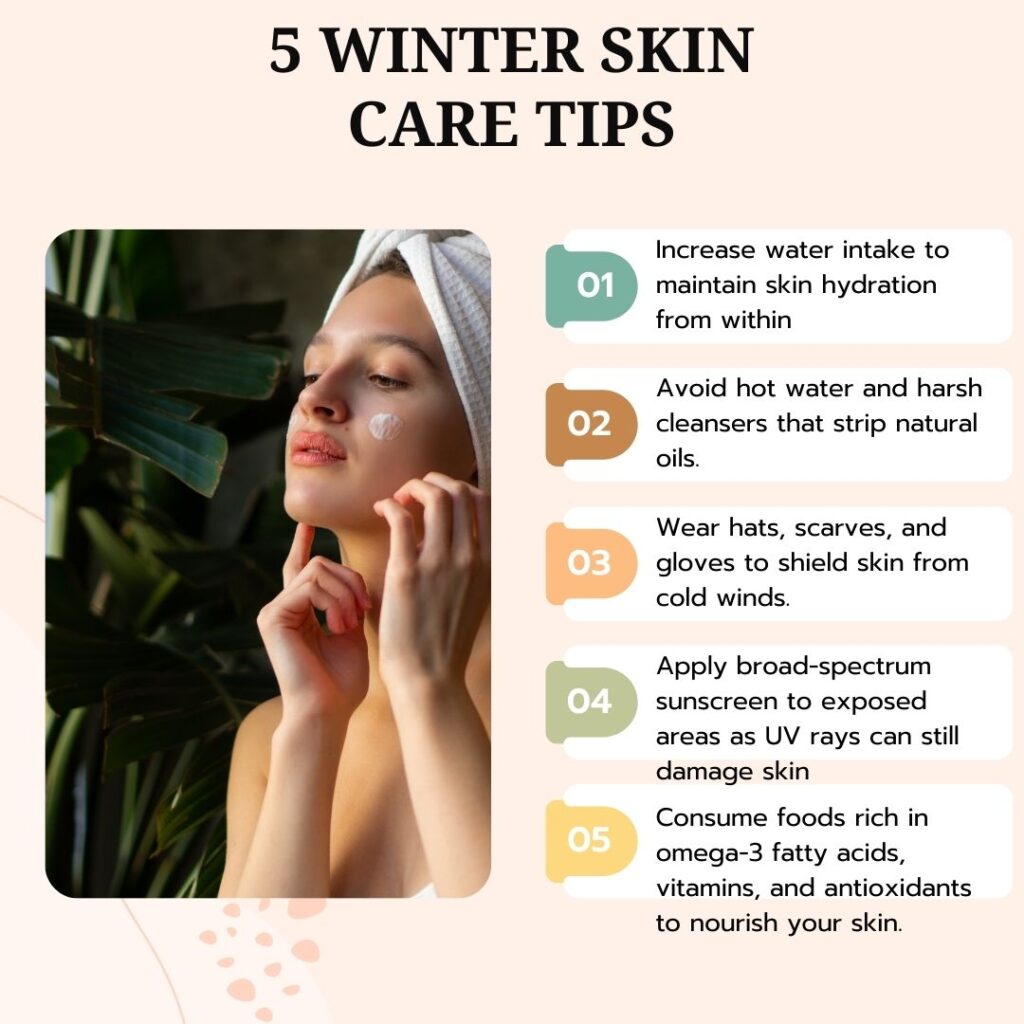
This image is property of continentalhospitals.com.
Importance of Winter Skincare
Winter weather can wreak havoc on your skin, causing it to become dry, flaky, and irritated. The cold, dry air outside, coupled with indoor heating that strips moisture from the air, can leave your skin feeling tight and uncomfortable. By following a winter skincare routine, you can help restore moisture to your skin, prevent dryness, and maintain a healthy complexion throughout the season.
Protecting Your Skin Barrier
The skin barrier, also known as the stratum corneum, is the outermost layer of your skin that acts as a protective shield against environmental aggressors. During the winter months, this barrier can become compromised due to the harsh conditions, leading to increased moisture loss and sensitivity. To protect your skin barrier, it’s essential to use products that help strengthen and repair it.
When choosing skincare products for winter, look for ingredients like ceramides, hyaluronic acid, and niacinamide that can help restore and maintain your skin barrier. These ingredients help lock in moisture, soothe dryness, and improve the overall health of your skin. Incorporating a hydrating serum or moisturizer into your skincare routine can provide an extra layer of protection for your skin barrier.
Avoiding Harsh Ingredients
During the winter months, it’s best to steer clear of skincare products that contain harsh ingredients like alcohol, fragrances, and sulfates. These ingredients can further strip your skin of its natural oils and moisture, exacerbating dryness and irritation. Opt for gentle, nourishing products that are designed to hydrate and soothe your skin without causing further damage.
Look for products labeled as “fragrance-free,” “alcohol-free,” and “sulfate-free” to ensure that you’re not exposing your skin to unnecessary irritants. Using a gentle cleanser that doesn’t strip your skin of its natural oils is crucial, as over-cleansing can disrupt your skin barrier and lead to increased dryness. Consider switching to a cream or oil-based cleanser that can effectively cleanse your skin without drying it out.
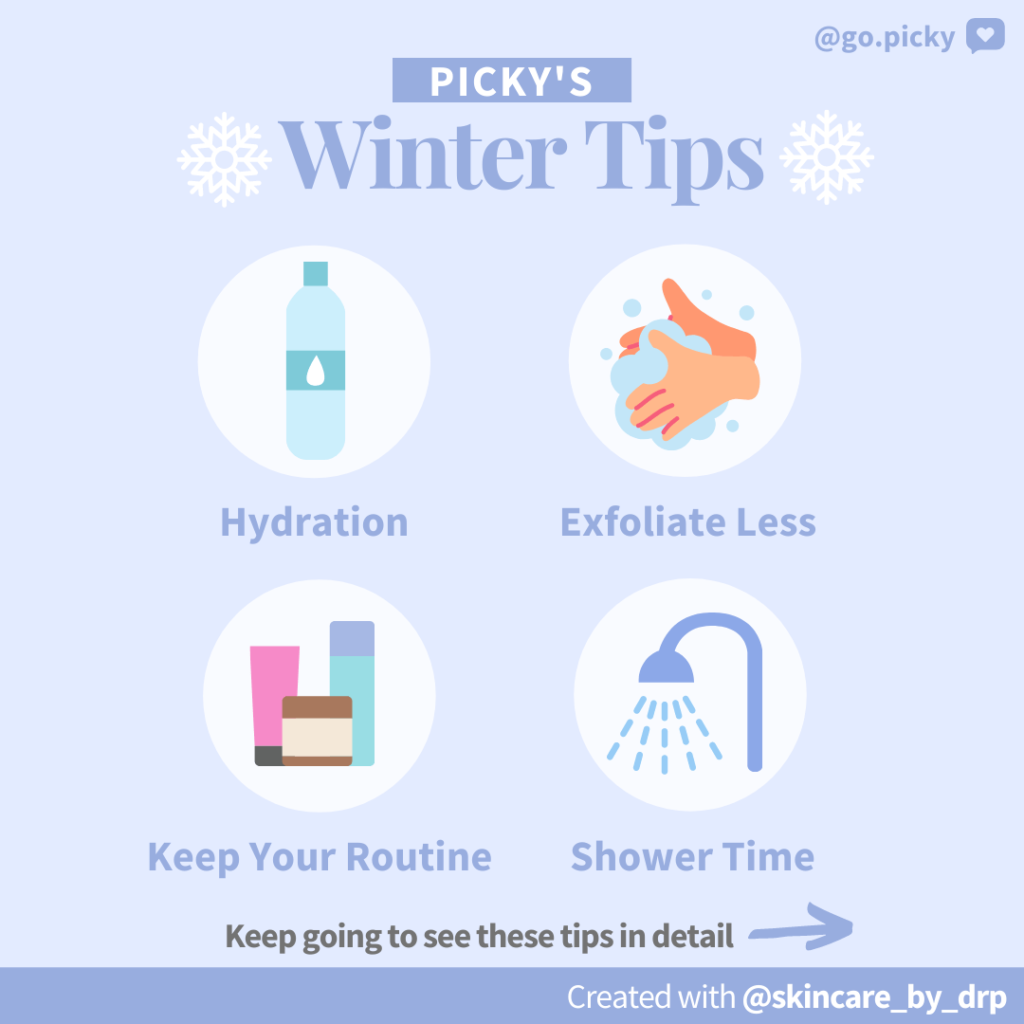
This image is property of blog.gopicky.com.
Essential Winter Skincare Products
In addition to incorporating skin-friendly ingredients and avoiding harsh chemicals, choosing the right skincare products for winter can make a significant difference in the health and appearance of your skin. Here are some essential winter skincare products that you should consider adding to your routine:
Hydrating Cleanser
A hydrating cleanser is a must-have during the winter months, as it helps gently remove dirt, oil, and impurities from your skin without stripping it of its natural oils. Look for a cleanser that contains hydrating ingredients like hyaluronic acid, glycerin, or ceramides to keep your skin moisturized and nourished.
Hyaluronic Acid Serum
Hyaluronic acid is a powerhouse ingredient that can hold up to 1000 times its weight in water, making it a great hydrator for dry, dehydrated skin. Adding a hyaluronic acid serum to your skincare routine can help plump and hydrate your skin, reducing the appearance of fine lines and wrinkles caused by dryness.
Moisturizer
A rich, emollient moisturizer is essential for locking in moisture and protecting your skin from the harsh winter elements. Look for a moisturizer that contains occlusive ingredients like shea butter, jojoba oil, or squalane to create a protective barrier on your skin and prevent moisture loss.
Facial Oil
Facial oils are a great way to boost hydration and nourishment in your skincare routine, especially during the winter months. Look for oils like argan, rosehip, or marula that are rich in antioxidants and essential fatty acids to help repair and replenish your skin barrier.
Sunscreen
Even though the sun may not feel as intense during the winter months, UV rays can still cause skin damage and premature aging. Make sure to apply a broad-spectrum sunscreen with an SPF of 30 or higher every day, rain or shine, to protect your skin from harmful UV radiation.
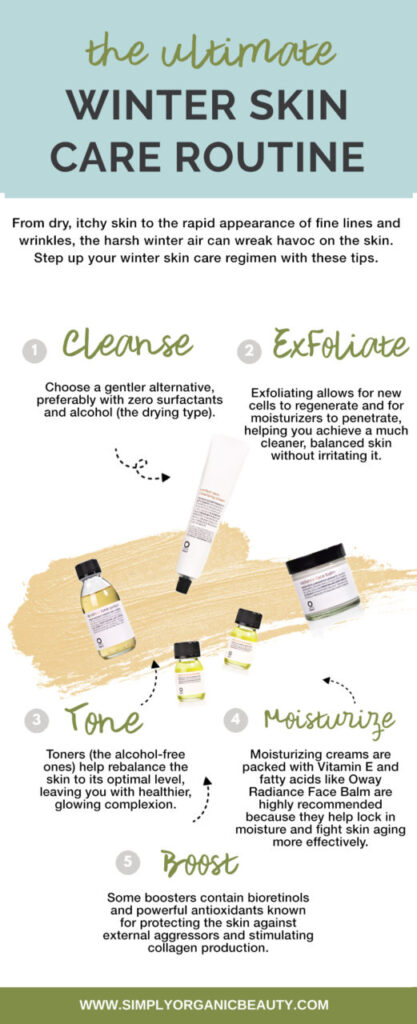
This image is property of www.simplyorganicbeauty.com.
Creating a Winter Skincare Routine
Now that you have an understanding of the importance of winter skincare and essential products to incorporate into your routine, let’s talk about how to create a winter skincare routine that works for you. A good skincare routine consists of cleansing, treating, moisturizing, and protecting your skin, tailored to your skin type and concerns.
Cleansing
Start your winter skincare routine by cleansing your skin with a hydrating cleanser morning and night to remove dirt, oil, and makeup. Gently massage the cleanser onto damp skin, then rinse with lukewarm water to prevent stripping your skin’s natural oils. Avoid hot water, as it can further dry out your skin.
Treating
After cleansing, apply a hydrating serum or treatment to provide your skin with extra moisture and nourishment. This step helps target specific skin concerns like dryness, fine lines, or dullness, allowing you to customize your skincare routine based on your needs.
Moisturizing
Follow up with a rich, emollient moisturizer to lock in moisture and protect your skin from the elements. Massage the moisturizer onto your face and neck using gentle, upward strokes to promote circulation and absorption. Don’t forget to moisturize your body as well, especially areas prone to dryness like elbows, knees, and hands.
Protecting
Finish off your winter skincare routine by applying a broad-spectrum sunscreen with an SPF of 30 or higher during the day to shield your skin from UV rays. Even on cloudy days, UV radiation can penetrate through the clouds and cause skin damage, so it’s essential to wear sunscreen daily.
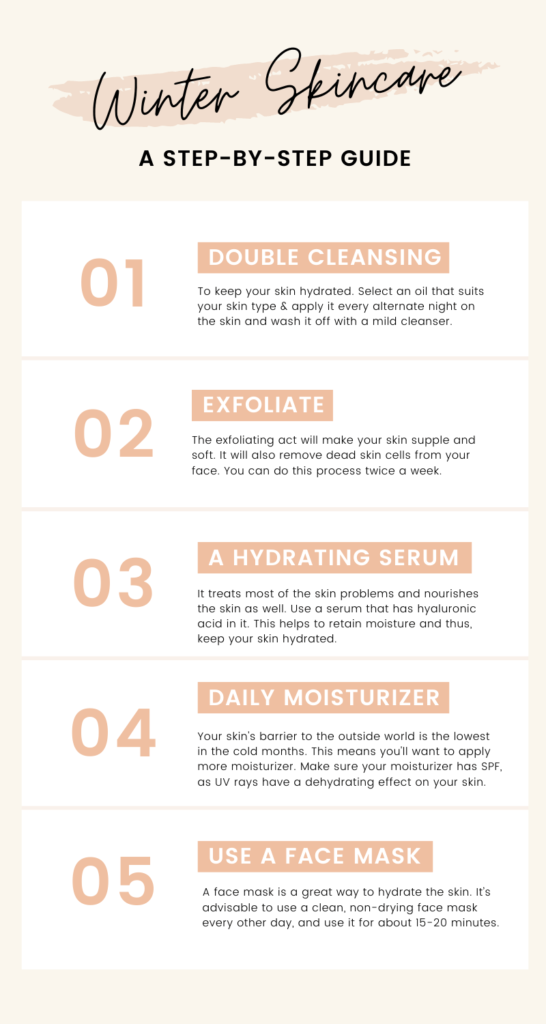
This image is property of media6.ppl-media.com.
Additional Tips for Winter Skincare
In addition to following a winter skincare routine and using the right products, there are some additional tips you can incorporate to keep your skin healthy and glowing throughout the season. Here are some extra tips for winter skincare:
Humidifier
Using a humidifier in your home can help add moisture to the air, preventing your skin from becoming dry and dehydrated. Place a humidifier in your bedroom or living room to create a more humid environment that benefits your skin and overall well-being.
Exfoliation
Regular exfoliation can help remove dead skin cells, unclog pores, and improve the absorption of skincare products. However, during the winter months, it’s essential to use a gentle exfoliator that won’t further irritate or dry out your skin. Consider incorporating a chemical exfoliant with AHAs or BHAs into your skincare routine for a more gentle exfoliation.
Lip Balm
Don’t forget to care for your lips during the winter season, as they can become dry, chapped, and cracked due to the cold weather. Use a nourishing lip balm with hydrating ingredients like shea butter, coconut oil, or vitamin E to keep your lips soft and moisturized.
Drink Water
Staying hydrated is crucial for maintaining healthy skin, especially during the winter months when indoor heating can dehydrate your skin. Drink plenty of water throughout the day to help replenish lost moisture and keep your skin hydrated from the inside out.
Healthy Diet
Eating a balanced diet rich in vitamins, minerals, and antioxidants can help improve the overall health of your skin. Include foods like fruits, vegetables, nuts, seeds, and fatty fish in your diet to nourish your skin from within and support its natural functions.
Professional Treatment
Consider scheduling a professional skincare treatment like a facial or chemical peel to give your skin a boost and address specific concerns like dryness, dullness, or uneven texture. Professional treatments can help exfoliate, hydrate, and rejuvenate your skin, leaving it looking refreshed and radiant.
By following these best practices and tips for winter skincare, you can combat dryness, soothe irritation, and keep your skin healthy and glowing throughout the season. Remember to listen to your skin, adjust your routine as needed, and prioritize self-care to maintain a happy, healthy complexion year-round.
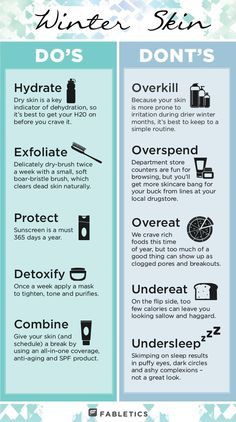
This image is property of i.pinimg.com.

2 thoughts on “Best Practices For Winter Skincare”
You have remarked very interesting details! ps decent internet
site.Raise your business
Thanks for sharing. I read many of your blog posts, cool, your blog is very good.